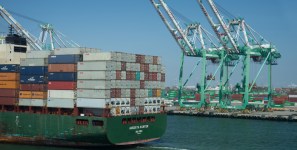Automation Remains at the Center of ILA Concerns
It was difficult to avoid the national news coverage of the International Longshoremen’s Association (ILA) strike during the first week of October. Doomsday scenarios, people hoarding toilet paper, and Union President Harold Daggett’s 7,136-square-foot New Jersey home, complete with a brick pizza oven and a snappy Bentley in his carport, were social media sensations. However, the heart of the ILA’s concerns surrounds automation and its eventual impact on union jobs.
Read also: Managing The Supply Chain through Disruption: The 2024 ILA Strike on the Gulf and East Coasts
Like any other sector of the economy, port management is driven by the same profit-seeking that strives to maximize productivity. Port automation has been an ongoing phenomenon for years, but union resistance is particularly pronounced in the US.
“Smart ports” have integrated digitalization and technologies such as AI, Big Data, blockchain, and 5G. While the US is the tech capital of the world, when it comes to smart ports, the country is a perennial laggard mainly due to union resistance.
Of the ten major smart ports globally, seven are in Europe, two in Asia, and only one in the US. Traditionally, longshoremen were engaged in highly strenuous activity, lifting and moving goods by hand from incoming ships and loading them onto trains for subsequent transport. Today, the job is nearly 100% centered on operating machinery, tracking cargo, and coordinating transport with trucking companies. However, dockworkers are expected to troubleshoot when things go wrong, so there remains a considerable amount of work in the “elements” as a result.
In China, for example, port unions have little bargaining power. The regime maintains a tight grip on worker organization, and while unions exist, they are not advocating for worker rights or demands in the same way as in the US. While a laundry list of actions takes place that would never be permissible in the US, the Chinese have aggressively pursued port automation and are closing in on world-renowned European smart ports such as the Ports of Antwerp, Hamburg, and Rotterdam.
Automation of anything will naturally result in displacement. But, it remains to be seen just how many jobs would actually be eliminated through port automation. Proponents argue that the displacement would result in moving longshoremen into more productive areas of work. Opponents contend that those positions don’t yet exist, and over the near term, jobs will be eliminated.
The push to modernize via automation is inevitable, so any ILA win will likely be challenged once again shortly. Market forces eventually prevail, but the ILA is doing its best to hang on to the status quo.





Leave a Reply